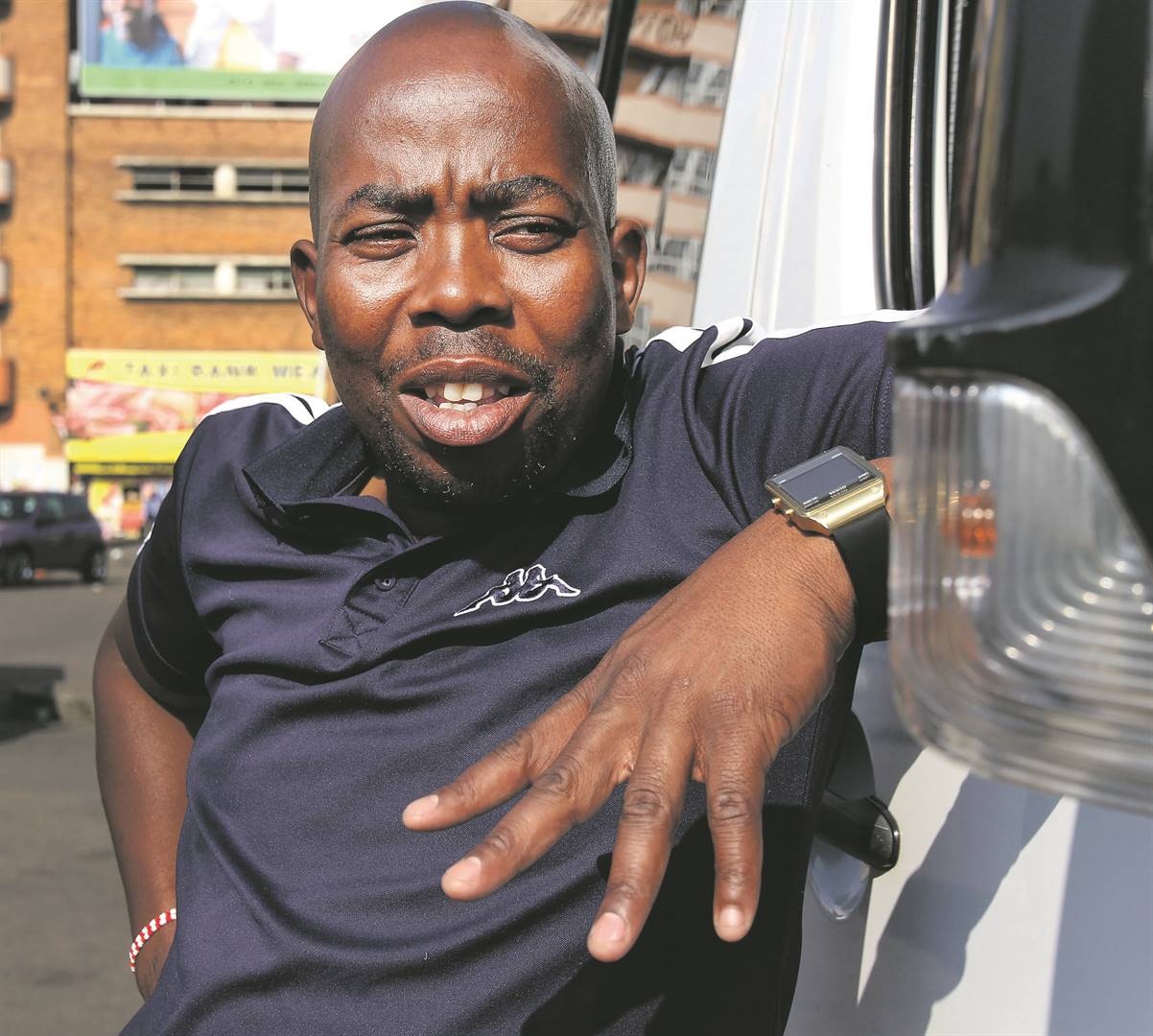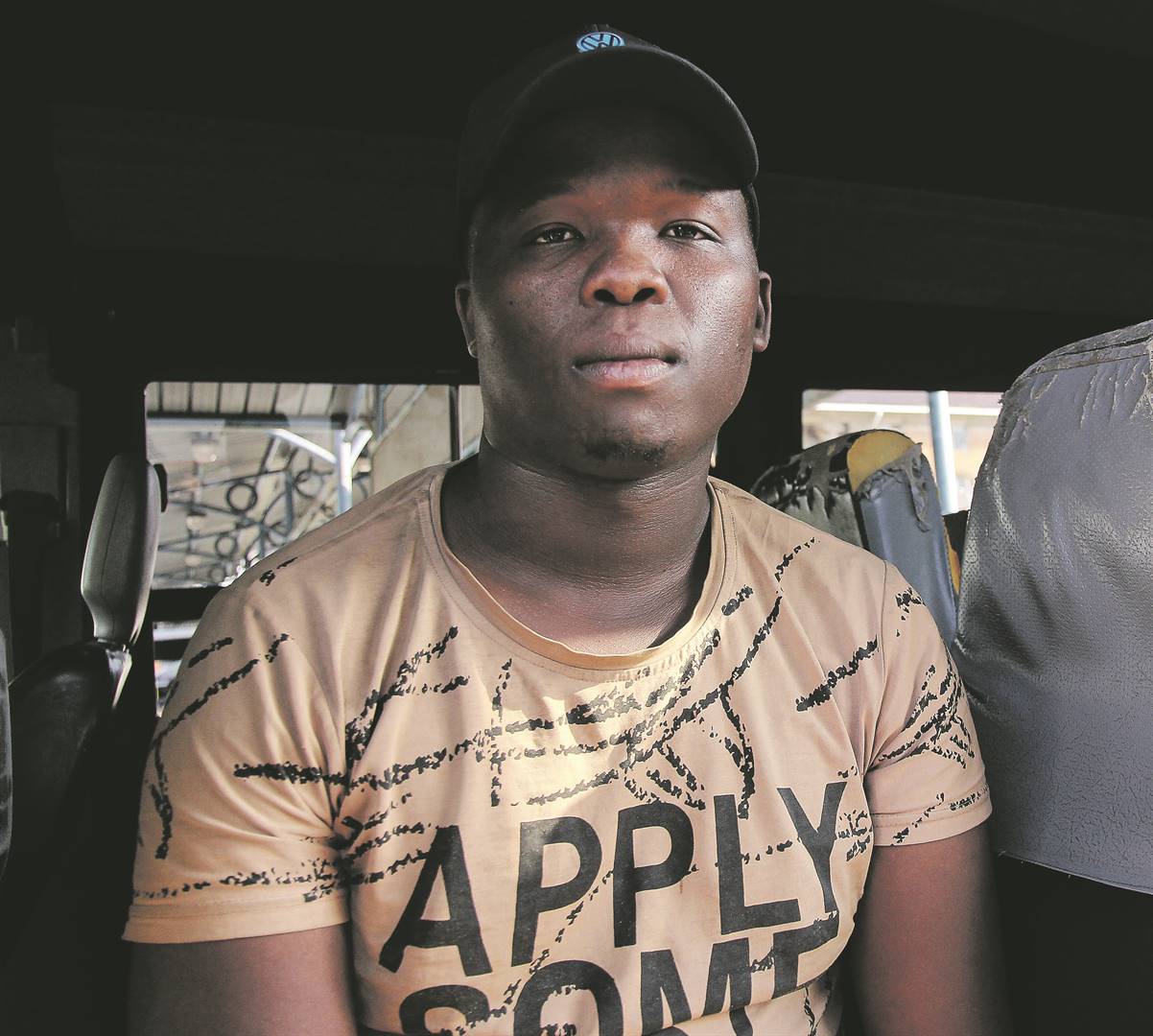
“If the South African government can give us free condoms, why can’t they provide us with free masks now, at a time when our health is clearly in imminent danger?”
This is the sentiment of Tete Masete, a taxi driver at Wanderers taxi rank in the Johannesburg CBD.
Sitting in his 22-seater minibus taxi, waiting for it to fill up with passengers so he can embark on a six-hour journey to Limpopo, Masete said: “I don’t earn enough money to buy masks. In fact, I don’t even know where I would buy masks if I had to. Where do people buy these masks?” he asked with an enquiring look on his face.
It appears that more people want to step up their game in prioritising their health following the increase in the number of reported cases of the Covid-19 coronavirus in the country.
Masete’s statement earned a nod in agreement from his 30-year-old colleague Christopher Moduki.
“There are condoms everywhere for people to protect themselves, so why can’t the same be done with masks that could possibly save us from this coronavirus?” asked Moduki.
“Protection is protection. How can I be expected to supply masks for myself as well as all the passengers I transport every day?”
While he advocates the free distribution of masks, Moduki believes he is immune to the virus. “I am young and eat healthily,” he says.
At the same time Moduki admits, like many commuters and taxi operators around Noord taxi rank and Wanderers, that his knowledge of Covid-19 is limited because “there aren’t enough awareness campaigns about it available to us”.
“I don’t really know the symptoms or what else can help besides the masks, but I know there is a coronavirus and that people can get it by just breathing.”
Masete adds: “But we are taxi drivers, we work with people. I drive a taxi full of people to Limpopo for six hours, and we breathe the same air. We could be coughing the whole six hours.”
Other men at the taxi rank said they knew more about HIV and Aids than Covid-19 and that the latter was more dangerous.
“In my opinion, this coronavirus is worse than Aids. At least with Aids you can see when a person is sick and there is some sort of medication for it,” said a taxi owner who identified himself as Mdletshe.
His opinion was reiterated by those around him who could be heard yelling in support: “Yeah, yeah!”
Forty-four-year-old Peter Tladi, who drives one of Mdletshe’s minibus taxis on the Johannesburg to Botswana route, said: “We know how we get Aids. With this new corona, all you have to do is breathe and you get it. I would go for Aids if I had to choose between the two.”
With the taxi rank abuzz on a daily basis with talk of the fear of contracting Covid-19, masks would seem to be too much to ask from government in the absence of proper ablution facilities – which could be increasing the risks.
For 41-year-old taxi driver Sphiwe Mtshali, who works on the Bekkersdal to Johannesburg route, the lack of immediate access to water is troubling.
“They say we must wear masks and wash our hands, but look at this place,” he says as he yanks his head sidewards, pointing in the direction of the taxi rank.
“The drivers here are men. We have no facilities to relieve ourselves. So all we do is find a corner where we can pee and that’s that. No washing of hands,” he says.
“And obviously we work with cash so we exchange monies with passengers every single day, with a number of different passengers. So it is clear that we are at a daily risk of being infected.”
Mtshali, a father of four who hails from KwaZulu-Natal, has been a taxi driver since 2007.
He needs to work in order to support his family and the “coronavirus will not stop me from doing that”.
Isolation – Refers to isolation or confinement of Covid-19-positive individuals at one of the 11 designated isolation hospitals in the country.
Quarantine – The World Health Organisation’s quarantine guidelines say: “Quarantine implies the use or creation of appropriate facilities in which persons are separated from the community while being attended to ... possible settings include holiday facilities, dormitory or military facilities; home-based quarantine might be the only feasible option.” While in quarantine, the people being attended to are well but have had exposure to Covid-19. They are quarantined to allow the incubation period to pass and to wait for test results when they are conducted.
Screening at ports of entry:
- At airports of entry screening begins on board with questionnaires being completed by all arriving passengers;
- Port health officials collect all the questionnaires and conduct the first round of screening on board the aircraft. They inspect every person for any sign of illness and conduct temperature screening with thermal scanners;
- Any person exhibiting symptoms and recording an elevated temperature or reporting close contact with a confirmed Covid-19 case is immediately removed from the aircraft for assessment at the Port Health Services at the airport;
- The other passengers are allowed to disembark and pass through a second round of scanning either by hand-held thermometers or by a distal thermal scanner; and
- Any person found to exhibit symptoms of an elevated temperature is also guided towards the Port Health Services.
How it is tested:
- Covid-19 is diagnosed by a laboratory test, a polymerase chain reaction molecular test, on a respiratory tract sample, for example, from the nose, throat or chest.
- Covid-19 is a virus that causes respiratory disease. The incubation period – the period from the time one acquires the virus to the time they exhibit symptoms – can be up to 14 days. Once a person becomes symptomatic, they can shed the virus through secretions such as saliva, mucous, droplets, tears and sweat.
For Mtshali his livelihood and that of his family supersedes the danger of infection.
“We have families both here and back home, so we cannot allow the coronavirus to deter us from what we came to Gauteng for. We are here to work so we can provide for our families,” he says passionately.
“We cannot run away from the coronavirus and we cannot let it keep us from doing our jobs. People need transport and we need the money. It has not affected us so far, and we can’t just stop working.”
As people get on with their days and with not a mask in sight between Noord taxi rank, Wanderers and Park Station, it would seem no cloud of worry about Covid-19 hangs over Johannesburg CBD.
This indeed is the case for MTN taxi rank street hawker, Sebenzile Shongwe, who said she has “left it all in God’s hands”.
“If God decides that I will die from corona, then that is what will happen, no matter what I do. So I cannot constantly worry about it,” she said.




 Publications
Publications
 Partners
Partners










